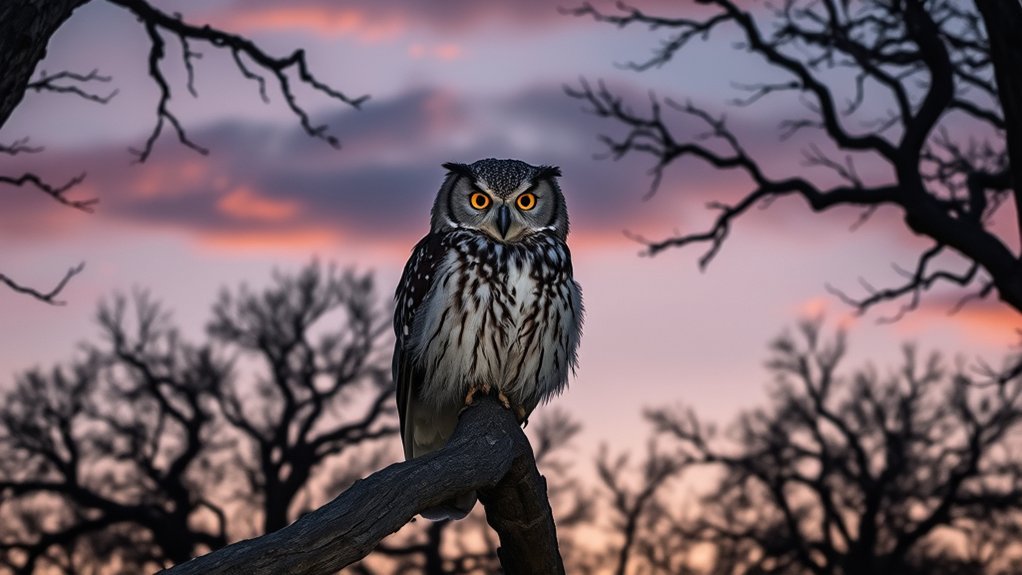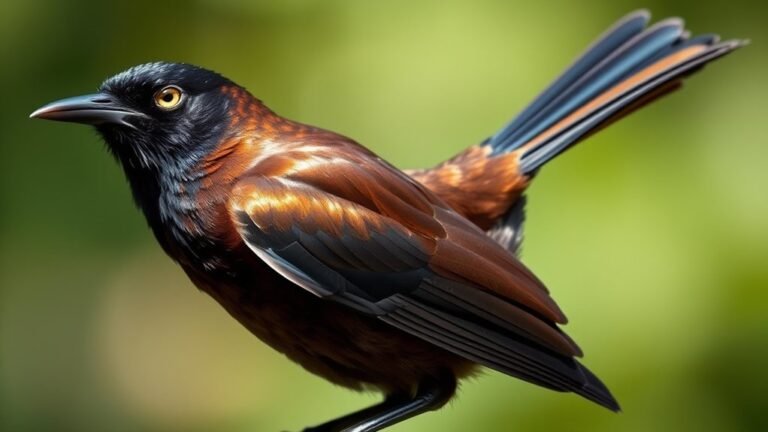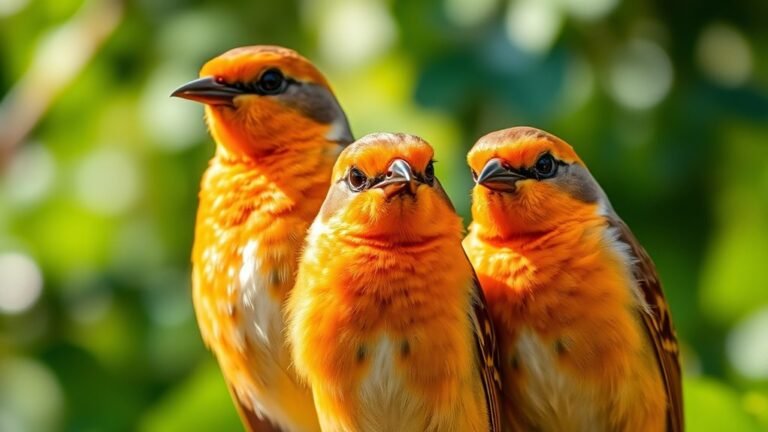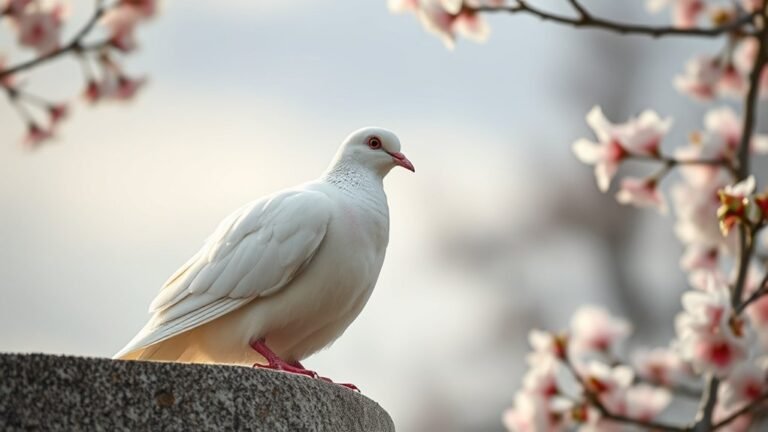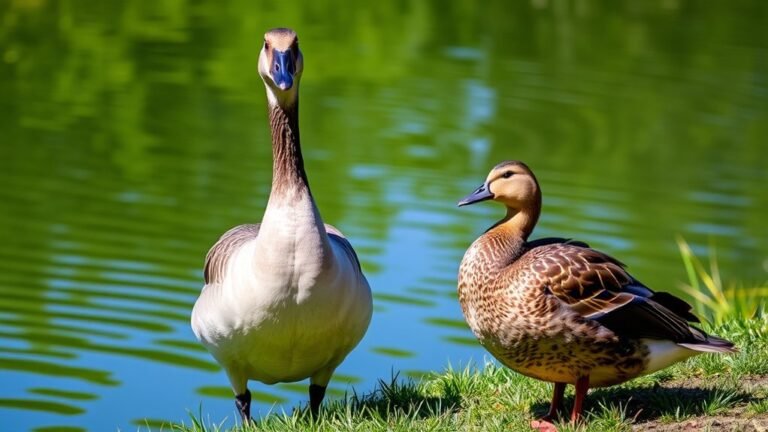How Long Do Owls Typically Live?
Owls live for different lengths of time based on their kind and where they live. Big owls, like great horned owls, can live about 13 years in nature. Smaller owls, such as eastern screech owls, usually live around 8 years. In cages or zoos, some owls can live more than 20 years.
Many things can change how long owls live. What they eat, where they live, and if they face dangers from other animals all matter. Knowing about these things can help us understand how owls survive. What else do you think might impact their lives?
A Quick Overview
Owls live for different lengths of time depending on their species. Some owls, like barn owls, usually only live around 4 years, while bigger owls can live for more than 25 years! Great horned owls typically make it to about 13 years in the wild. Eastern screech owls have an average lifespan of around 8 years.
When owls live in captivity, they can often live up to 20 years. This is because they are in safe places with fewer dangers.
Several things can affect how long owls live. Good habitats, healthy food, and a stable environment all help owls live longer. Conservation efforts, like restoring habitats and cleaning up pollution, also help owl populations stay healthy and live longer lives.
Owls are fascinating creatures, don't you think?
Overview of Owl Lifespan by Species
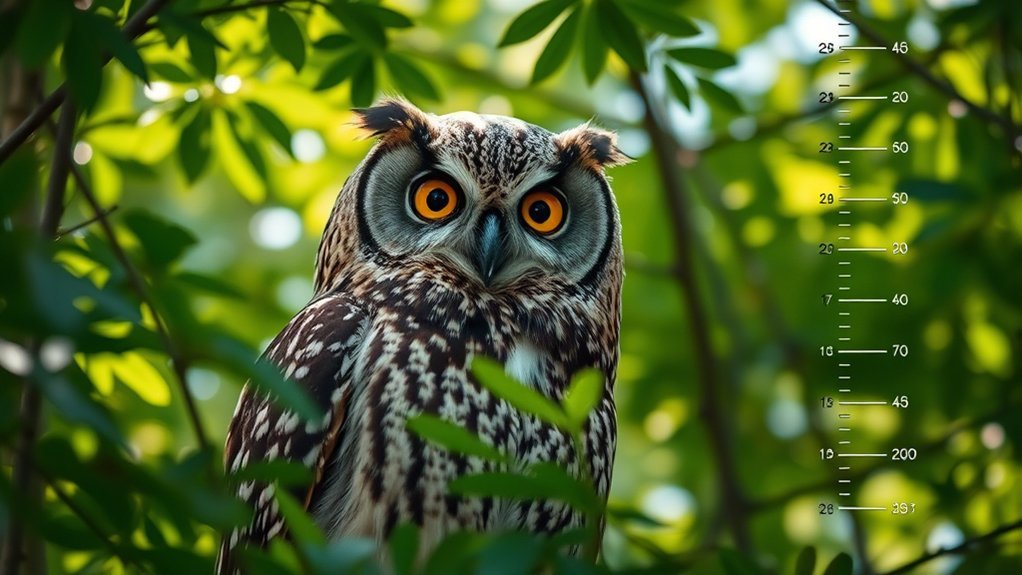
Owls live for different amounts of time based on their species. Each type of owl has its own lifespan. For example, a great horned owl usually lives about 13 years in the wild. In contrast, a barn owl might only live around 4 years.
However, some owls can live much longer in captivity, reaching up to 20 years!
Smaller owls, like the eastern screech owl, typically live for about 8 years. On the other hand, larger owls often live longer, with some even reaching over 25 years.
Knowing these facts helps us appreciate each owl type even more and learn what makes them special.
Factors Influencing Owl Longevity
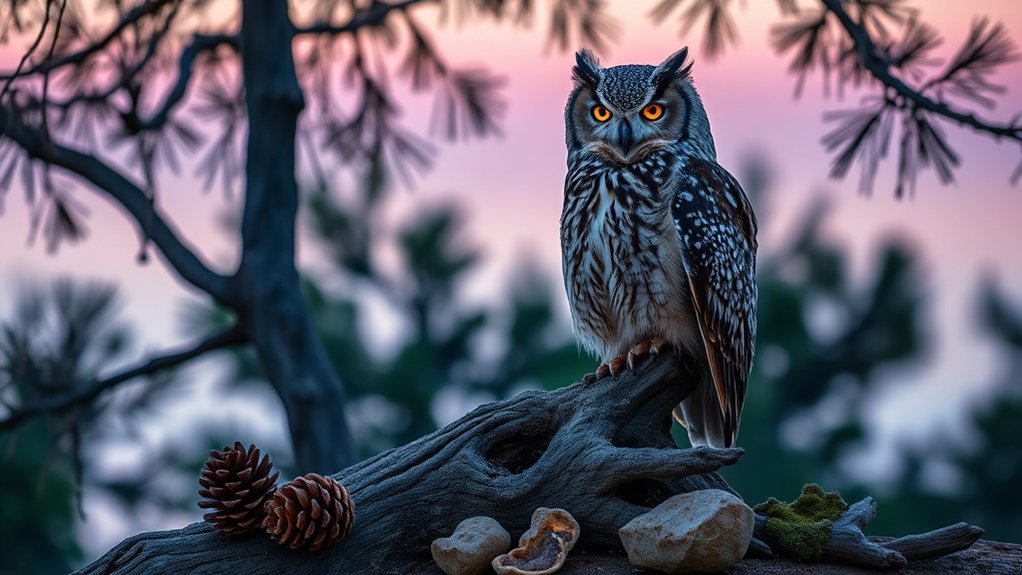
Owls are interesting birds, and learning about how long they live can be fun. Different things can affect how long owls stay alive. Let's look at some of these important factors.
- Breeding Habits: Owls that have baby owls and take care of them tend to live longer. When they successfully raise their young, it helps keep their population healthy.
- Environmental Stressors: Things like cutting down trees, pollution, and changes in weather can hurt owls. They need specific places to hunt and make nests, so these problems can cut their lives short.
- Predation and Competition: Sometimes, other animals can threaten owls. If there are too many predators or competition for food, it can make it harder for owls to survive.
The Role of Habitat in Owl Lifespan

Habitat is very important for how long owls live. Owls need certain environments to be happy and healthy. Different places like forests, grasslands, and deserts give them what they need, like shelter and nests. If you care about wildlife, remember that a stable environment helps owls live longer.
When habitats are stable, owls have less stress and can reproduce better, leading to healthier populations.
On the other hand, when habitats are damaged or lost, owls face dangers. They may be at risk from predators or harsh weather, which can shorten their lives.
Diet and Its Impact on Owl Life Expectancy
Owls live longer and healthier lives when they eat well. A good diet is very important for them. What they eat can vary a lot, but they usually hunt small mammals, birds, and insects.
Here are some key points about how diet affects their life expectancy:
- Varied Food: Eating different types of food helps owls get the vitamins and minerals they need.
- Food Availability: Changes in the seasons can affect how much food is around. This can impact how many calories owls can eat.
- Hunting Skills: Good nutrition gives owls energy, making them better hunters.
When owls have good food options, they can stay healthy and live longer. Understanding these simple points helps us see why diet is so important for their lives.
Predators and Threats to Owl Survival
Owls are great hunters, but they aren't at the top of the food chain. They've many predators and face different dangers that can cut their lives short. Larger birds, like eagles and hawks, can attack smaller owls.
Habitat loss is another big problem. When humans build cities or farms, they destroy places where owls nest and hunt. Pollution from factories and cars also harms them. Many people don't know that owls can be hurt or killed in accidents with cars and power lines.
We need to understand these threats to help owls survive. Protecting their homes and being careful with our actions can make a big difference.
Owls are amazing creatures, and we should do our best to keep them safe!
Conservation Efforts and Their Influence on Owl Lifespan
Conservation efforts are helping owls live longer lives. By working on projects that protect their habitats, we create better places for owls to thrive.
Here are three important ways these efforts support owl longevity:
- Better homes: Restoring natural areas gives owls enough food and safe places to nest.
- Fewer dangers: Conservation projects reduce risks like pollution and habitat loss, which can make owls live shorter lives.
- Community involvement: Teaching people about owls helps them feel connected and responsible. This encourages them to join in on conservation activities.
When we focus on these factors, owls not only survive but also live healthier, longer lives in their natural homes.
Let's support these efforts to help owls flourish!
Frequently Asked Questions
Do Owls Have Any Natural Predators?
Yes, owls do have natural predators. Bigger birds, like eagles and hawks, hunt owls with their sharp claws and beaks. Some animals, like foxes and raccoons, also hunt baby owls or try to sneak into their nests. So, while owls are great hunters themselves, they also have to watch out for these larger animals.
How Do Weather Conditions Affect Owl Lifespan?
Weather affects how long owls live. Changes in the climate can impact their homes and food supply. For example, if it gets too hot or too cold, owls may struggle to find food. If their habitat is destroyed, they can lose their shelter. These challenges can make life harder for owls, causing them more stress and leading to a shorter lifespan.
When we think about owls, it's important to remember that they need a good environment to thrive. Without it, they may not live as long as they could. Keeping their homes safe and preserving their food sources is vital for their survival and health. Owls are amazing creatures, and we should do our best to help them live longer, happier lives.
Can Owls Live in Captivity Longer Than in the Wild?
Yes, owls can live longer in captivity than in the wild. In captivity, they get regular food and medical care. This protection from dangers, like predators, helps them live healthier and longer lives. So, if you take care of them, they can thrive for many years!
What Diseases Commonly Affect Owls and Shorten Their Lifespan?
Owls can get sick just like any other animal. Some common diseases that affect them include avian influenza and West Nile virus. These illnesses can make owls very weak and can harm their lifespan.
Another big problem for owls is habitat loss. When their homes disappear, it puts extra stress on them. This stress can make them more likely to get infections, which can also reduce how long they live.
Are There Specific Conservation Organizations Focused on Owl Protection?
Yes, there are many groups that work to help protect owls. These organizations focus on keeping owl habitats safe. They do this by protecting forests, fields, and other places where owls live. When you support these groups, you help ensure that owls can thrive and be around for future generations to enjoy. Owls are amazing creatures, and they need our help!

Luna is the passionate founder and author of Birds and You, a website dedicated to sharing her love for birds with fellow enthusiasts. Through her engaging articles and guides, she aims to educate and inspire others to explore the fascinating world of birds. When she’s not writing, you can find Luna observing birds in their natural habitats or sharing beautiful bird photography on Pinterest. Join her on this journey to celebrate and protect our feathered friends!

